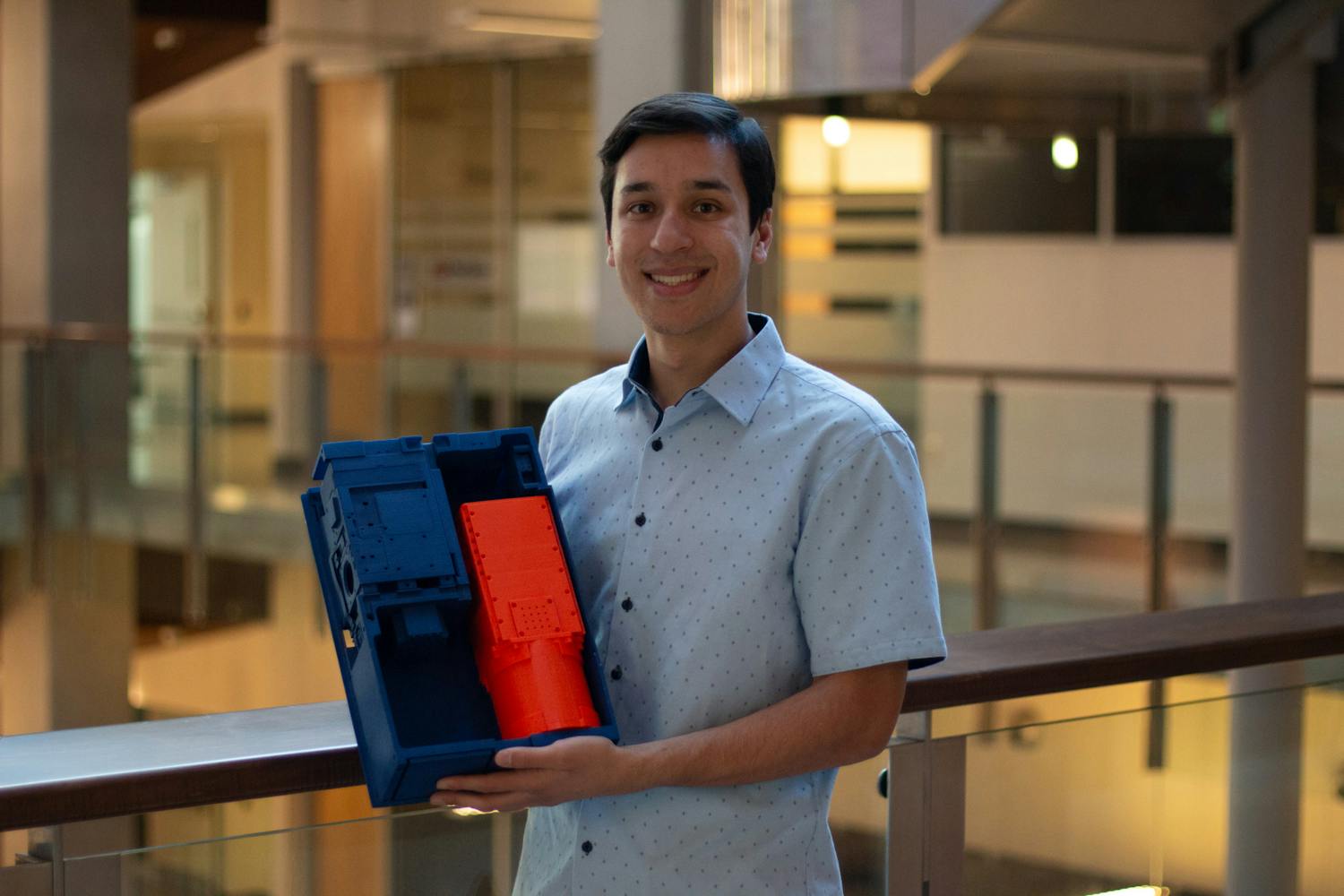A number of professors have built new classes, from the ground up and with guidance from the University, to help their students understand how the new coronavirus impacts their field of study and job possibilities after graduation.
Classes were designed for the summer semester and are being offered during all three sessions. Course titles include: Managing Grief during COVID-19, Responses in a Changing World, The Literature of Pandemics, Pandemics and Public Management, Communicating During a Pandemic and more.
C.R. Macchi is teaching a College of Health Solutions special topics course titled Effective COVID-19 Responses in a Changing World.
The class relies on guest speakers and 11 discussion topics attempting to answer the following: What are the key factors leading to vulnerabilities among patients? What is the process of developing and disseminating a vaccine for COVID-19? How can future health policies address disparities revealed by COVID-19?
READ MORE: Summer 2020 enrollment sets University record
Macchi said the class is intended to be an opportunity to hear about health related issues from those on the front lines or those who are dealing with behind-the-scenes impacts caused by the new coronavirus in the health care field.
"It's a chance to test drive leadership," said Victor Fazio, faculty associate in the School of Criminology and Criminal Justice, who is teaching a master's level course titled Criminal Justice Leadership During Unique Events. "And it's a good dose of theory and practice."
Fazio's class is mainly research based, he said, and will ask students to take on the role of a patrol sergeant, jail commander and police chief that will attempt to find ways to mitigate the spread of the coronavirus while policing the community, maintain service control in prisons and address a city budget.
Fazio said this was his first time designing a course that could change at any minute which presents a different kind of difficulty than trying to schedule a normal course or transition materials to an online version.
READ MORE: Most ASU summer session B classes to be held remotely
"The course and its relation to currents events are a practical interpretation of ideas about criminal justice and their practice," Fazio said. "Students will get tools to deal with something in real-time."
Fazio said he wants to teach the class in a way that allows students to use problem solving skills to other pandemics or crises but it's difficult to predict the future, hence the research based model.
Other professors are using the online model to host a number of lecture speakers who might not normally be able to come to campus.
Most classes are taught by one instructor in a traditional way but Eric Legg, Claire McWilliams and Anne Kotleba are teaching Community Services and COVID-19 to students in the School of Community Resources and Development.
Legg has a parks and recreation expertise, McWilliams specializes in tourism and Kotleba has studied and worked in the nonprofit sector. The three want to tackle COVID-19 from a different angle by having all three professors present.
"There are strands that connect our fields together," McWilliams said, pointing to high density locations, services that require people and frequently touched surfaces in public.
The class will review each of the professor's area of study, discuss how they connect, examine what happened to major stakeholders in each sector and then students will pick an organization and suggest improvements for how it can move forward, plan for reopening and establish a contingency plan.
"There are winners and losers in COVID-19," McWilliams said. "If you're selling toilet paper, you're a winner. But if you're trying to organize a massive music festival, you're losing right now.
"What this is doing is forcing students to relook at what their entry points are in the industry and whether or not they've built a pipeline of support via teachers, graduates, internships that that's going to serve them well when they need to navigate this strange world," McWilliams said.
Legg said COVID-19 has shown just how important the community services sector is to people and encouraged incoming freshmen to stick with their major. He said increased trail use, desperation for recreation and establishing Zoom alternatives makes the area of study, and the class, more relevant than ever.
The intersection of nonprofit organizations helps students look to where the helpers are for broader context of how to navigate community services. Kotleba explained organizations that help health care workers and their children should be studied in the way they are allocating money within them and ways they will move forward.
Students will have the opportunity to study what they're about to do with courses catered to changing environments, Macchi said of all courses related to COVID-19.
As of June 16, the Arizona Department of Health Services reported 39,097 confirmed cases of COVID-19 and 1,219 deaths across all 15 counties and the numbers are rising as more people get tested in Arizona following the state's reopening in the middle of May.
In order to keep his course up to date with the news and what's happening in the medical field, Macchi said numerous faculty members will comprise a medical advisory team to monitor the class and give guidance to other special topics courses.
All of the professors said they are actively reaching out to recent graduates with resources from their class and contacts to people in the ASU community who might be able to help them.
"This virus came upon us like a steamroller," Macchi said. "Bringing important, intelligent people and their ideas and struggles will be a service to the University and students."
Reach the reporters at pjhanse1@asu.edu and follow @piperjhansen on Twitter.
Like The State Press on Facebook and follow @statepress on Twitter.

Piper Hansen is the digital editor-in-chief at The State Press, overseeing all digital content. Joining SP in Spring 2020, she has covered student government, housing and COVID-19. She has previously written about state politics for The Arizona Republic and the Arizona Capitol Times and covers social justice for Cronkite News.




